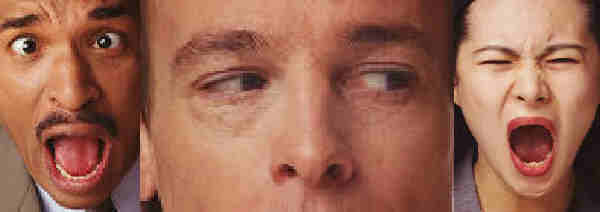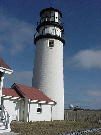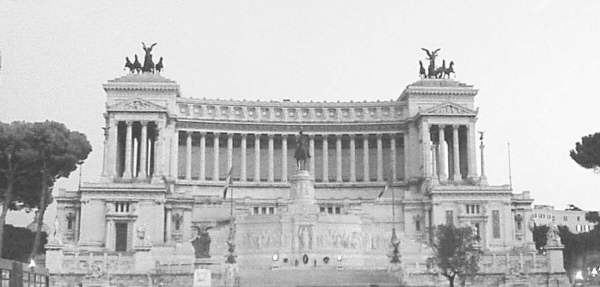
Introduction

Introduction
For this invention [writing] will produce forgetfulness in the minds of those who learn to use it, because they will not practise their memory. Their trust in writing, produced by external characters which are no part of themselves, will discourage the use of their own memory within them. You have invented an elixir not of memory, but of reminding; and you offer your pupils the appearance of truth, not truth, for they will read many things without instruction and will therefore seem to know many things, when they are for the most part ignorant and hard to get along with, since they are not wise, but only appear wise.~~~ Plato (274-275BC) in Phaedrus
A Reader's Journal -- Journeys into Understanding Volume I
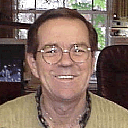
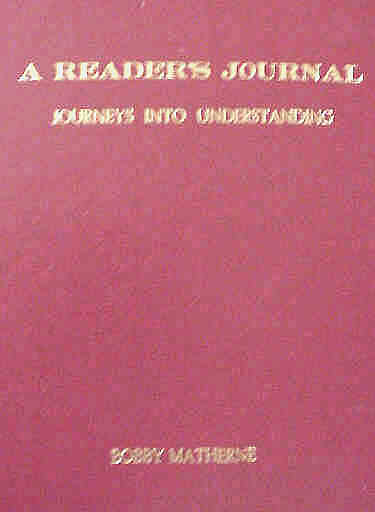
ONCE, MANY PARADIGM HOPS AGO, I wished to become a writer and did not know how to go about it. As I usually do when confounded, I found the answer at my elbow, in a book. This time it was Peter Elbow, and he became my writing teacher. He did so by instructing me, as I read his classic book, Writing Without Teachers. All the other courses had teachers to teach you how they write, but Peter taught me how to write by teaching me to begin, not by studying literature, not by taking grammar lessons, not by building my vocabulary, but by writing, purely and freely, on a blank piece of paper, to make that blank piece of paper my companion, my best friend, my friendie who accompanies me everywhere I go, and to whom I confide my inner-most secrets.
The exercise my teacher suggested he called Free Writing, wherein you write non-stop until you fill up both sides of a page or for about ten minutes. No editing, no stopping, no trying to make sense, just stringing words one after the other without end or coherency until your goal is reached. Then you stop, fold the paper and put it away for a minimum of three weeks. After that, if you like, take it out and read it. Keep the parts you like and notice the other parts. They are all raw material for your future work. Go back and write again, every day; write until your free writing exercises become as necessary as your morning breakfast, your daily walk, the air you breathe.
You are now a writer. You have joined the most honored, sacred, and easy-to-join society in the world. It is also the best-read society in the world, so you find yourself studying literature. It is also the best writing society in the world, so you find yourself building your vocabulary and studying grammar. That was how I joined.
One of the privileges bestowed on members of this society is to quote and paraphrase a fellow member's words inside your own writing, with due credit: no using of another's property without permission, and permission is granted automatically for short quotes used inside a review. To paraphrase Groucho Marx, I say about my writing teacher, Peter Elbow: "I would never accept a teacher that would have me as a student."
This book is a book of teacher-less writings: some 287 of them; but more of them later.
When I first began to write, I had to fit my free writing exercises into a busy schedule, which included a wife, eight children, and a day-time avocation as a nuclear power plant supervisor. I had to be creative and flexible, catching ten minutes during lunch or after everyone had gone home for the day. I began dating the exercises as one might a journal, and they became a de facto journal. One day I sat down to my daily writing ritual after finishing reading a book. I found myself writing — as usual about what was on my mind — only, on this day, that book was on my mind, so I wrote about the book. The first one was like a thumbnail sketch of my impressions of the book just after finishing reading it. I filed it away and, three weeks later, I retrieved it and read it. It was good in a way that I hadn't been good before — certainly not in my writing about books back during my writing-with-teachers phase in college.
I felt so good reading that first review, that I began to write a similar review for each book thereafter, some 300 books. Not every book I read made it — one book with the cover torn off didn't. Some one or two others, too insignificant to recall, shall remain as nameless as they are review-less; the remainder comprise my reading list, up until now.
That's how the writing began sort of like a long run-on sentence where each word is a book review and each book review is a book like a word was once a poem and one wonders what is the meaning of the sentence and how come there is no punctuation because the problem was punctuation itself as in when to say all this so far is a book and that what follows will be in other books. Writing a book is like punctuating a sentence: the book represents a complete thought and you put a comma or semi-colon or period after it to signal that a new thought is coming. So punctuation was the first real problem I encountered when I began thinking of these sketches as material for a book. Like in the joke where the kid says, "I can spell ‘banana' — I just don't know when to stop," I had to decide when to say enough. Faced with an earth-shaking decision like that, I did what the usual person would do: I put it off. The reviews kept coming and the book kept getting bigger.
When I hit on the title, A Reader's Journal: Journeys into Understanding, I felt the first impetus to punctuate. All this goes into A Reader's Journal, I thought, and whatever follows has to create its own book. I don't like the sequel approach to movies or life (Once In A Row Is Enough, Matherne's Rule #1), so don't look for me to do More Journeys into Understanding; "none but a blockhead would write just for money" to paraphrase Dr. Samuel Johnson.
Why do I write? That's a good question. Thank you, for asking that! I write for understanding, both for me and my readers. Thus it is appropriate that the first review I did was of Gary Brent Madison's book, Understanding. I remember the title and the author these eight plus years later.
To have beautiful views to gaze into between the demands of my job at the nuclear power plant (something other than bare concrete), I made a point of buying the National Geographic Engagement Calendar every year. Looking at the calendar on my desk one day, it occurred to me that the reverse side might actually be written on. I began using the calendar side, not for scheduling activities, but for recording activities: noting the day I finished a book and wrote its review. I annotated not only the review day but, on every day that I read from a book, I wrote the author's name in full and the book's title in full. This required will power, but it paid off in my beginning to remember the names of the authors and the titles of the books I'd read, even years later.
"A scholar is someone who remembers his sources," I read that back before I became a scholar but it seems to apply to me now. I became a scholar when I began writing down the names and authors of the books I was reading. I wrote them on my National Geographic weekly engagement calendar that I had originally bought because of the pretty pictures. "Life is what happens when you're doing something else," someone else said. Seems like writing books can be like that as well.
Perhaps you're wondering, "Can I be a writer?" I can only ask you the wonderful question that Annie Dillard asked of someone who asked her that question: "I don't know. Do you like sentences?" Because if you do not like sentences, you may work at being a writer but will never become one.
Are you unhappy with your life? Fearful? Angry? Anxious? Feel down or upset by everyday occurrences? Plagued by chronic discomforts like migraines or tension-type headaches? At Last! An Alternative Approach to Removing Unwanted Physical Body States without Drugs or Psychotherapy! Click Here To Return to ARJ, Volume 1 after the Introduction.
Click on Faces Below.
